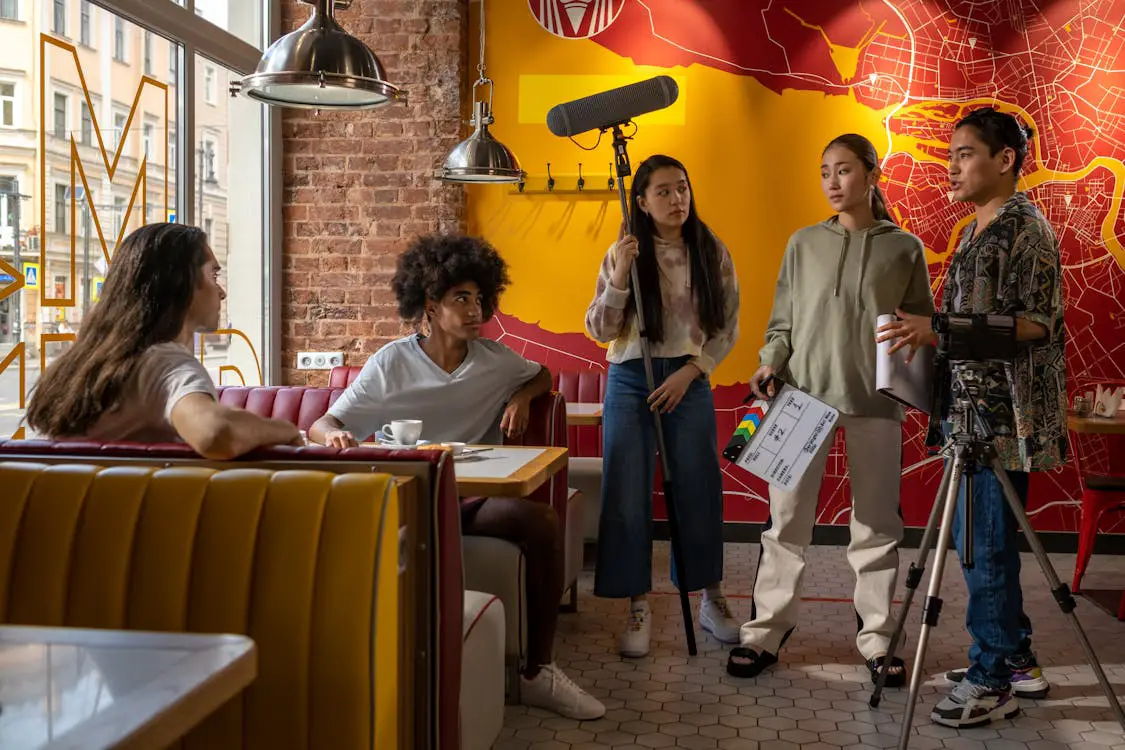What Do Actors Say When Pretending to Talk?

In the world of acting, one of the most fundamental skills is the ability to make a conversation look and feel real, even when it’s not. From the iconic moments in movies to everyday scenes in TV shows, actors often find themselves “pretending to talk,” mimicking the natural flow of human conversation while delivering scripted lines. But what exactly are actors saying when they’re pretending to have a conversation? Is it all part of the script, or do they have room to improvise?
The Scripted Conversation
In most instances, actors are working with a script that outlines the dialogue they need to speak. The words, tone, and pacing are all carefully crafted by the writer, and it’s the actor’s job to deliver these lines in a way that feels natural and engaging.
When pretending to have a conversation with another character, the actor is often reacting to the other person’s lines—whether it’s a co-worker, friend, or enemy in the story. The scripted dialogue is designed to mimic a real conversation. This can include greetings, questions, statements, and responses, just like in our everyday interactions.
For example, a scene might have two characters in a coffee shop:
- Character 1: “How’s work been lately?”
- Character 2: “It’s been crazy, but I think I’m managing. What about you?”
- Character 1: “Same here, just trying to keep up with everything.”
While the lines might seem simple, they’re still carefully crafted to serve the plot, reveal something about the characters, or build tension between the people involved. In these situations, the actors focus on delivering these lines as smoothly and realistically as possible.
Filler Words: The Unseen Magic of Conversation
In real life, conversations are rarely perfectly scripted. People often use filler words like “um,” “like,” “you know,” or “uh” to keep the conversation going while they think. These small verbal cues help simulate the imperfections of real dialogue and make the exchange feel more natural.
When actors are pretending to talk, they might add their own filler words (within the framework of the script) to make the conversation feel more organic. In fact, some directors encourage actors to use filler words, especially in scenes where realism is key. This can help avoid the feeling of dialogue being too stiff or unnatural.
Improv and the Art of Spontaneous Conversation
While the script is crucial, many actors also have room to improvise in certain scenes. Improvisation allows actors to add spontaneity to the conversation, making it feel more authentic and less rehearsed.
In some productions, improvisation is a key part of the process. For instance, in comedy films or shows, directors may give actors the freedom to riff off of each other and let their instincts guide the conversation. The actors may start with the scripted lines but then riff, ad-lib, or play around with the dialogue to see where the scene goes.
An example of this is seen in The Office, where many moments were improvised, making the conversations between characters feel more casual and unplanned. While the script laid the foundation, the actors were encouraged to take the conversation in new directions, allowing for unexpected and often hilarious results.
Pretend Conversations for Background Noise
In certain scenes, such as crowded parties or bustling office spaces, actors may not be required to deliver fully scripted lines, but instead engage in pretend conversations for background noise. These “background” dialogues, also called “murmuring” or “wallah,” are used to simulate the noise of a busy environment.
In these instances, actors are still pretending to talk, but they’re not delivering specific scripted lines. Instead, they might say generic phrases, like “How’s it going?” or “What’s new?” to create the illusion of a lively setting. These improvised snippets don’t have to make complete sense but are instead designed to enhance the atmosphere of the scene.
Mimicking Real Conversations
Another fascinating aspect of pretending to talk is when actors must mimic real conversations that are meant to look improvised but are actually entirely scripted. This is common in action scenes, where characters might engage in quick banter before a fight, or in thrillers where a conversation is deliberately stilted to hide a secret plot. The challenge for the actor is to make these contrived conversations seem effortless and unrehearsed.
Actors must understand not only the lines but the subtext, motivation, and tone behind them to deliver a convincing performance. A conversation that seems off-the-cuff may actually have layers of meaning underneath, even if the audience doesn’t realize it.
Conclusion
When actors pretend to talk, it’s often much more than just reciting lines. While the script serves as the foundation, actors rely on their skills to breathe life into conversations—whether through carefully crafted dialogue, improv, or small moments of realism like filler words and background chatter. Whether scripted or spontaneous, pretending to talk is an art form that makes a scene feel real and relatable, pulling the audience deeper into the story. In the end, it’s not just what they say, but how they say it that makes the conversation believable.




